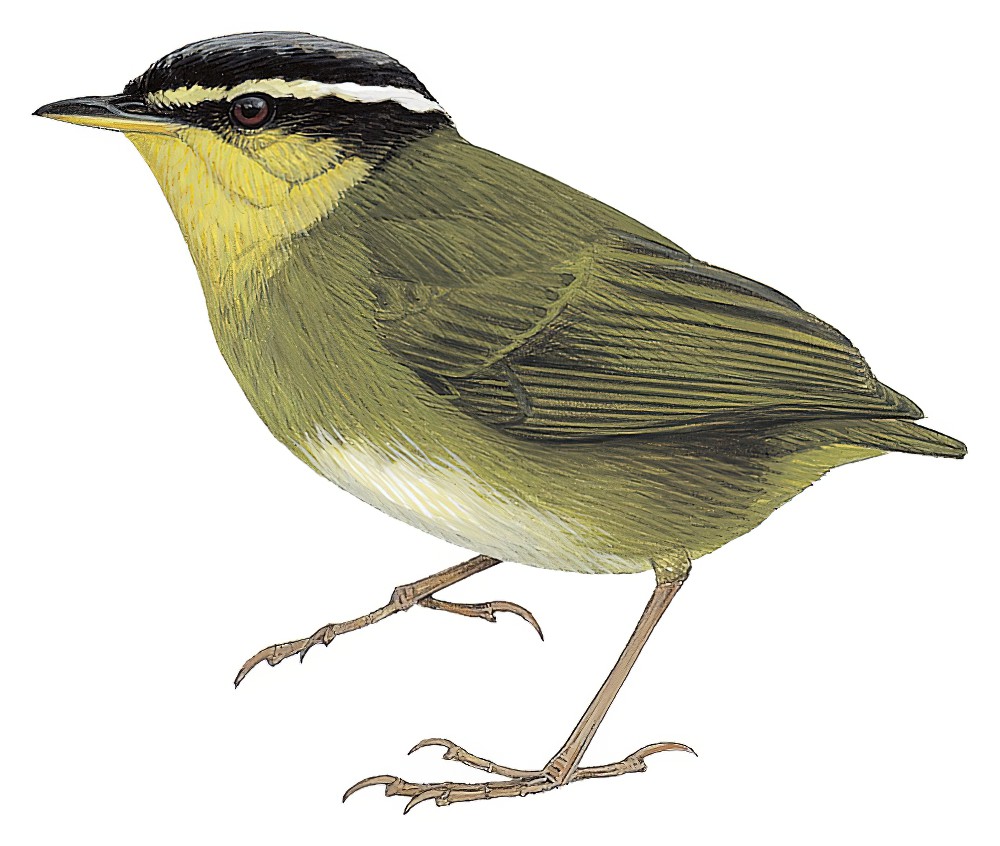Neumann’s Warbler / Urosphena neumanni

Neumann's Warbler
SCI Name:
Protonym: Sylvietta neumanni Bull.Br.Orn.Club 23 p.42
Taxonomy: Passeriformes / Scotocercidae / Urosphena
Taxonomy Code: neuwar1
Type Locality: forest west of Lake Tanganyika, Belgian Congo; altitude 2,000 meters.
Author: Rothschild
Publish Year: 1908
IUCN Status: Least Concern
DEFINITIONS
UROSPHENA
(Scotocercidae; Ϯ Asian Stubtail U. squameiceps) Gr. ουρα oura tail; σφην sphēn, σφηνος sphēnos wedge; "Mr. Brooks urges me to have a figure of this bird published, and to assign to it the characters of a new genus, as he considers that it does not belong to Tribura, Pnoepyga, Horornis, or any other known genus, though it has certain characters in common with them. I think, therefore, that it would be as well to propose for it the generic name Urosphena, from its wedge-shaped tail, and to characterize it as follows:— Bill at base exceedingly slender and much depressed. Wing of unusual power for such a little bird. Tail almost as in Pnoepyga, but somewhat more rounded. Style of coloration scaly, as in Pnoepyga. Legs and feet large, strong, and coloured as in Horornis. Lower tail-coverts very long. Mr. Brooks says, "I do not know of any genus in which this little bird can be placed: the scaly plumage separates it from Horornis, Neornis, and Tribura. This, with its queer short tail, brings it near Pnoepyga; but the bill is as slender as in Troglodytes, or more so, and the wing is quite unlike that of Pnoepyga. I wonder whether ten tail-feathers is the correct number; that is the number in my specimen, which appears to be perfect." The synonymy of this bird will stand as follows:— UROSPHENA SQUAMICEPS. Tribura squamiceps, Swinhoe, P.Z.S. 1863, p. 292; Ibis, 1866, p. 397, et 1874, p. 155." (Swinhoe 1877); "Urosphena Swinhoe, 1877, Ibis, p. 204, pl. 4. Type, by monotypy, Tribura squameiceps Swinhoe." (Watson in Peters 1986, XI, 6).
Synon. Orthnocichla, Urophlexis.
neumanni / neumanniana / neumannianus
Prof. Oskar Rudolph Neumann (1867-1946) German ornithologist, explorer and collector in East Africa 1892-1899, Associate at Tring Mus. 1908-1931 (syn. Alcedo leucogaster bowdleri, syn. Anthreptes orientalis, syn. Anthus similis hararensis, subsp. Anthus vaalensis, syn. Apalis flavida flavocincta, Arizelocichla, subsp. Bradornis microrhynchus, syn. Campethera nubica, syn. Cecropis semirufa gordoni, subsp. Centropus leucogaster, syn. Certhia brachydactyla, syn. Cisticola hunteri, syn. Euplectes axillaris phoeniceus, subsp. Gallinula tenebrosa, subsp. Galerida cristata, Hemitesia, subsp. Lophoceros pallidirostris, subsp. Melierax metabates, syn. Muscicapa adusta minima, subsp. Muscicapa striata (ex Muscicapa grisola sibirica Neumann, 1900), syn. Numida meleagris, subsp. Oenanthe melanura (ex Cercomela melanura erlangeri Neumann & von Zedlitz, 1913), Onychognathus, syn. Passer griseus swainsonii, subsp. Phonygammus keraudrenii, subsp. Ploceus baglafecht, syn. Prionops retzii graculina, subsp. Psittacara acuticaudatus, subsp. Ptilinopus solomonensis, subsp. Ptilorrhoa caerulescens, syn. Pyrenestes ostrinus, subsp. Terpsiphone rufiventer, subsp. Vidua chalybeata).
UPPERCASE: current genus
Uppercase first letter: generic synonym
● and ● See: generic homonyms
lowercase: species and subspecies
●: early names, variants, mispellings
‡: extinct
†: type species
Gr.: ancient Greek
L.: Latin
<: derived from
syn: synonym of
/: separates historical and modern geographic names
ex: based on
TL: type locality
OD: original diagnosis (genus) or original description (species)












